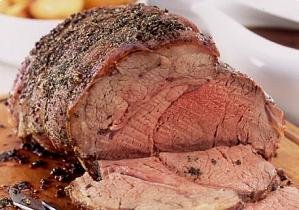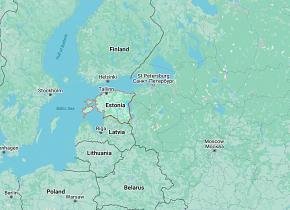Say no to Beef, Help Save the Planet
As you may know, consumption of red meat and particularly beef is associated with higher risks of colon cancer, cardiovascular disease and numerous other health problems. But its negative impact extends to more than just human health. Eating beef is actually harmful for the environment and ethically questionable, two more good reasons to quit that bad habit. First of all, beef production releases considerable amounts of greenhouse gases, and therefore contributes to the well known problem of global warming. Bovine’s digestive system produces methane, a greenhouse gas with more than 20 times as much global warming potential than carbon dioxide. Pound for pound, the gases emitted by beef production contribute more than 10 times as much to global warming as those generated by production of poultry. The difference is even more significant if you compare with plant foods, such as potatoes, for which the multiplying factor is around 60. Beef production also uses important quantities of freshwater, thus depletes global water supplies. In fact, the production of one kilogram of beef requires a global average use of 15500 litres of water, while 4800 litres are necessary for production of the same amount of pork, and even less for chicken. Soybeans, which are also a good source of protein and can consequently be a good dietary replacement for meat, require no more than 1800 litres of water per kilogram. Furthermore, increasing amounts of grain are required for meat production worldwide. As a matter of fact, nearly 40% of the world’s grain crops are used to feed animals while only half of that amount would be sufficient to feed all of the planet’s hungry people. When comparing the amount of grain fed per kilogram of meat produced for different livestock, poultry definitely comes out as being the most efficient producer. Beef, on the other hand, requires almost five times as much grain per unit of edible meat than chicken, and more than twice what is required for pork. In addition, beef is also the worst converter of plant-to-animal protein, with an efficiency rate of barely 4%, compared to 20% for broilers and 10% for pigs. That inefficiency also comes with a greater production of waste. Effectively, beef cattle produce more feces and urine than any other meat animal and nitrogen leached and volatilized from that waste is an important source of environmental pollution. It contributes to eutrophication and acidification of both terrestrial and aquatic ecosystems. So to conclude, avoiding red meat is not only good for your health. It can also help reduce your personal carbon, water and ecological footprint and therefore have a positive impact on the environment. More than that, it is a question of ethics, particularly when considering the world’s actual food crisis situation. So eat responsibly: say no to beef.
Comments
There are 0 comments on this post














